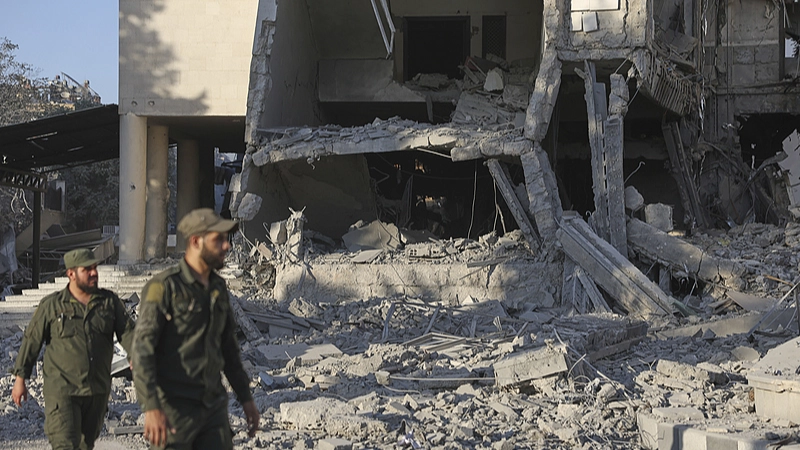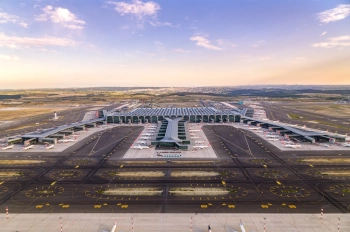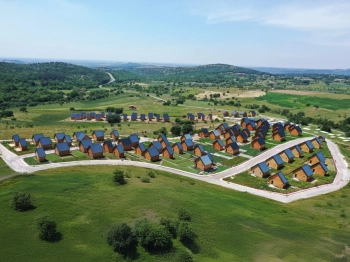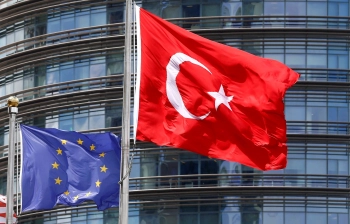Israeli Airstrikes Near Sweida: Escalating Tensions in the Middle East
What Happened in Sweida?
On a seemingly ordinary day, Syrian state media reported that Israeli airstrikes targeted areas near the city of Sweida in southern Syria. The strikes, which occurred without prior warning, have raised concerns about escalating tensions in an already volatile region. But what exactly transpired? According to reports, the strikes hit military installations and were allegedly aimed at Iranian-backed militias operating in the area. The Syrian government condemned the attack, labeling it a violation of its sovereignty.
This incident is not isolated. Over the past decade, Israel has conducted numerous airstrikes in Syria, primarily targeting Iranian forces and Hezbollah militants. The Sweida attack, however, stands out due to its proximity to a densely populated area, raising questions about civilian safety and regional stability.
Why Did Israel Target Sweida?
The question on everyone's mind is: Why Sweida? Analysts suggest that the strikes were part of Israel's broader strategy to curb Iranian influence in Syria. Iran has been a key ally of the Syrian government, providing military and financial support throughout the civil war. In return, Iran has established a foothold in Syria, deploying militias and building military infrastructure close to Israel's borders.
Israel views this as an existential threat. By targeting Iranian assets in Sweida, Israel aims to disrupt supply lines and prevent the transfer of advanced weapons to Hezbollah in Lebanon. A real-world example of this strategy was seen in 2018 when Israel struck an Iranian drone facility in Syria, preventing what it claimed was an imminent attack.

How Does This Affect Regional Stability?
The airstrikes near Sweida have far-reaching implications for regional stability. Syria, already ravaged by years of civil war, is now a battleground for proxy conflicts involving global and regional powers. The presence of Iranian forces, Russian military bases, and Turkish-backed rebels complicates the situation further.
For neighboring countries like Lebanon and Jordan, the strikes are a reminder of the fragile security situation. Lebanon, in particular, is caught in the crossfire due to Hezbollah's involvement. The 2006 war between Israel and Hezbollah serves as a grim reminder of how quickly tensions can escalate into full-blown conflict.
The Role of International Actors
International reactions to the Sweida airstrikes have been mixed. The United States has historically supported Israel's right to self-defense, while Russia, a key ally of Syria, has called for restraint. The United Nations has expressed concern over the violation of Syrian sovereignty but has stopped short of condemning Israel.
This dichotomy highlights the complexity of the Syrian conflict, where global powers pursue conflicting agendas. For instance, Russia's military intervention in 2015 turned the tide in favor of the Syrian government, while the U.S. has focused on combating ISIS and supporting Kurdish forces.
What’s Next for Syria and Israel?
The Sweida airstrikes are unlikely to be the last. Israel has made it clear that it will continue to target Iranian assets in Syria, regardless of diplomatic repercussions. For Syria, the challenge is to balance its alliances with Iran and Russia while avoiding further escalation with Israel.
One possible outcome is a cold war scenario, where covert operations and limited strikes become the norm. Alternatively, a miscalculation could lead to a broader conflict, dragging in regional players like Hezbollah and Hamas. The 2021 conflict in Gaza demonstrated how quickly localized tensions can spiral out of control.
Conclusion: A Precarious Balance
The Israeli airstrikes near Sweida underscore the fragile balance of power in the Middle East. With multiple actors vying for influence, the region remains a tinderbox waiting to ignite. While Israel's actions are driven by legitimate security concerns, they risk exacerbating an already volatile situation.
The international community must step in to mediate and prevent further escalation. Until then, the people of Syria and the broader Middle East will continue to bear the brunt of these geopolitical rivalries.






